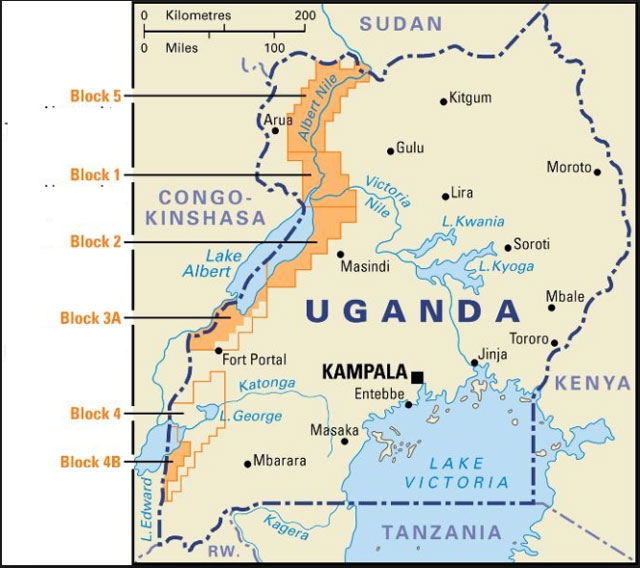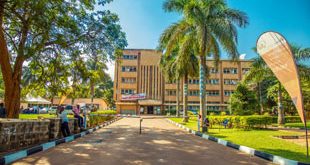
Hoima, Uganda | THE INDEPENDENT | The Energy Ministry has drawn a new roadmap for the second competitive oil bidding round for five blocks in the Albertine region.
The five oil blocks along its western border with Congo and parts of the West Nile region have been on offer since May 2019.
The licensing round should have been completed at the end of 2020 but from the new roadmap seen by URN, it may take another six months or more. Deadlines for the second licensing were extended following the outbreak of the COVID-19 pandemic which also affected global oil exploration.
And now the Director Petroleum Exploration Development and Production Department, Honey Malinga says the grant of exploration licenses expected to take place at the end of this year.
“ As the government of Uganda, we shall be happy to announce two or three companies on the second bidding round. We go to the next,” said Malinga
The Ministry Energy in early January shortlisted France’s Total SE, Australia’s DGR Global Ltd., Nigeria’s PetrolAfrik Energy Resources and Uganda National Oil Company.
URN discovered that France’s Total SE will be joined by China National Offshore Oil Corporation or CNOOC Group.
Under the roadmap, the shortlisted companies have up to June 30th, 2021 to complete the Request for proposal (RFP) stage. Evaluation of RFPS expected to take another two months between June and August. Malinga revealed that the June 30th deadline will not be extended.
“Let it be on record that we are going to be very hard on this. So that we know that this process that been completed. Rather than continue postponing it. Because at the end of the day people might forget whether we have bidding round or not” warned Malinga
Negotiation of the Production Sharing Agreements with successful bidders according to the roadmap will be completed before the end of December 2021.
There is fear that the upsurge of coronavirus cases and deaths in Uganda could further affect the process. But Frank Mugisha the Manager for the second competitive oil bidding round told URN that it is unlikely that process will be halted by the corona upsurge.
According to Mugisha, the four bidders have been granted all the necessary data to guide the bidding and that not physical meetings may take place. URN has however learned that some of the bidders had wanted to physically visit the blocks on offer.
Uganda’s race to exploit its huge oil resources comes amidst a growing global campaign against fossil fuels in favour of clean renewable energy. Some have feared that Uganda may not benefit from the resources when global demand shifts to renewables.
But Malinga told URN that while the pressure to shift from fossil fuel is on, investments in the sector may still be possible because a complete shift from fossil fuels cannot be instant.
Uganda is predicted to become one of the largest oil producers in East Africa. The country has discovered commercially recoverable oil reserves, with current oil exploration work taking place in the Albertine Graben region. Uganda’s proven crude oil reserves stand at 6.5 billion barrels with 1.4 billion commercially recoverable barrels.
The International Energy Agency last month published a report outlining a potential pathway for the world’s governments to achieve their commitments to reduce greenhouse-gas emissions to net-zero levels by 2050.
The report outlines a scenario in which no new oil and gas discoveries would be needed and supplies from existing fossil-fuel reserves would be limited to the lowest-cost producers.
Net Zero by 2050: A Roadmap for the Global Energy Sector,” which outlines plans for the global energy sector to reach “net-zero” greenhouse gas emissions by 2050 report called for a swift and immediate shift from petroleum energy sources to renewable energy.
African Energy Chamber, Executive Chairman, NJ Ayuk in a statement seemed to agree with Honey Malinga that an immediate shift was not possible.
“But we live in reality. And today, in real-world Africa, this goal is not feasible. Nor is it advisable. While I agree with their data on many topics, the IEA’s conclusion is flat-out wrong on this issue. Africa needs oil and gas” said Ayuk.
***
URN
 The Independent Uganda: You get the Truth we Pay the Price
The Independent Uganda: You get the Truth we Pay the Price


